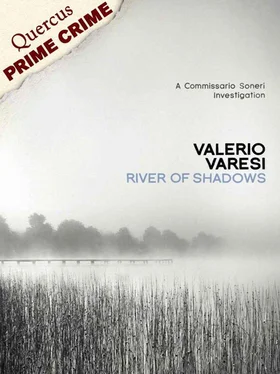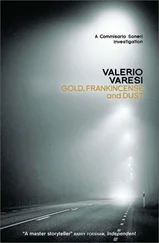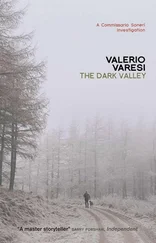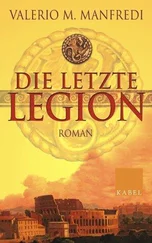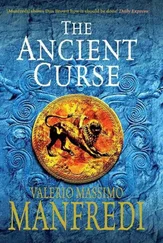Valerio Varesi - River of Shadows
Здесь есть возможность читать онлайн «Valerio Varesi - River of Shadows» весь текст электронной книги совершенно бесплатно (целиком полную версию без сокращений). В некоторых случаях можно слушать аудио, скачать через торрент в формате fb2 и присутствует краткое содержание. Жанр: Полицейский детектив, на английском языке. Описание произведения, (предисловие) а так же отзывы посетителей доступны на портале библиотеки ЛибКат.
- Название:River of Shadows
- Автор:
- Жанр:
- Год:неизвестен
- ISBN:нет данных
- Рейтинг книги:5 / 5. Голосов: 1
-
Избранное:Добавить в избранное
- Отзывы:
-
Ваша оценка:
- 100
- 1
- 2
- 3
- 4
- 5
River of Shadows: краткое содержание, описание и аннотация
Предлагаем к чтению аннотацию, описание, краткое содержание или предисловие (зависит от того, что написал сам автор книги «River of Shadows»). Если вы не нашли необходимую информацию о книге — напишите в комментариях, мы постараемся отыскать её.
River of Shadows — читать онлайн бесплатно полную книгу (весь текст) целиком
Ниже представлен текст книги, разбитый по страницам. Система сохранения места последней прочитанной страницы, позволяет с удобством читать онлайн бесплатно книгу «River of Shadows», без необходимости каждый раз заново искать на чём Вы остановились. Поставьте закладку, и сможете в любой момент перейти на страницу, на которой закончили чтение.
Интервал:
Закладка:
“Commissario, the questore asked me where you were.” Juvara.
“And it was you he asked?” Soneri said, with some annoyance.
“He said he’d been trying to reach you himself, but he always found your mobile switched off.”
“What does he want?”
“He’s upset because he’s found out that you knew about the illegal traffickers and the inquiry has ended up in the hands of the carabinieri. And he doesn’t understand why you’re still out on the Po instead of being at your desk. He even asked if you were away on your holidays.”
“Tell him that tomorrow or the day after there will be developments on the Tonna case,” Soneri cut him short. When he put his mobile back in his pocket, he was amazed at the self-possession with which he had spoken.
“Who’s the owner of that low-roofed villa with the statues of the angels in the garden?” he asked the old man who had heard him return.
“The Ghiretti family. The sons and daughters live in Milan, but the older members of the family live in Cremona. They come here three times a year.”
“There’s a camper van under the shelter. Would that belong to the family?”
“A diesel? The car that went along the road a short while ago was a diesel.”
“I think so, but it’s been there a while.”
“Ah then, I don’t know. I don’t think it belongs to the family. They must have rented the place to someone or other.”
“The car, the one you heard, finished up there at the same house.”
The old man stopped to think things over, but then repeated several times: “Strange, all very strange, it seems strange…”
The commissario went to stand beside him. “When exactly did you hear the car last night?”
“It was late, maybe eleven o’clock.”
Soneri wrote out in large print the number of his mobile and handed it to the old man.
“Tell your wife to call me the moment she hears the car get back. It’s very important.”
The old man clutched the paper and nodded.
By now he should know the road, Soneri thought, but it was not easy in the fog, and perhaps he would have to return to San Quirico later that night.
It was around 8.00 when he made his way into Il Sordo and he immediately felt himself enveloped by the atmosphere of warmth and beguiled by the scents from the kitchen. As he passed the open entrance to the cellar, his nostrils were filled with the mildly mildewed aroma of salame hanging from the beams below.
The landlord himself passed among the tables in the imperturbable silence in which he chose to wrap himself, heedless of the powerful strains of “Falstaff” echoing from the salame — coloured walls. When he came to Soneri, he stopped a moment to look closely at him, watching as the commissario rolled his cigar in his lips with a certain voluptuousness. He then picked up the menu, put it in his apron pocket and took out a notepad on which he had written in large letters on a lined sheet of paper: La vecchia.
Soneri was puzzled for a moment. La vecchia: the elderly woman? The old girl? The ageing female? His first thought was of Maria, Maria of the sands, but immediately he stopped himself: it was too easy to be distracted by professional concerns. His host simply wanted to let him know that he had some vecchia al pesto, minced horsemeat flavoured with a peperone sauce. Childhood memories came flooding back, and he nodded enthusiastically. The landlord kept his best dishes for those whom he considered most likely fully to appreciate them. The commissario was now of that company.
The vecchia lived up to every expectation and Soneri nodded gratefully to the landlord who must have cooked it especially for himself and his wife. It was like being invited to his home for dinner. Around 9.00 the osteria began to fill up. Barigazzi and Ghezzi came in, but when they saw the commissario, they took a table at the far side of the room. Soneri, untroubled, turned towards them, staring at them with a look which was also a challenge but at the same time keeping half an eye on the mobile which, unusually for him, he had laid on the table.
To wash down the vecchia, he ordered some Bonarda which bubbled like Fortanina but had more body. The bottle on offer in Il Sordo had so much tannin that it looked like ink. He drank it in little sips to help loosen the powerful mixture of peppers and minced horsemeat which lay heavily on his stomach. All the while he was waiting. He looked at the Christ with folded legs, at the marks of the levels reached by the floods, at the ceiling of the same colour as chopped pork and at the heads of the customers in the room, moving like the spherical blooms of onions blowing in the wind.
The jibe made by his superior, “Is he away on his holidays?”, came back to him. At certain times his job did resemble a holiday, mainly in the periods of inactivity in the course of an investigation when there was nothing to do except wait for something to happen. His was the kind of work which could sometimes be indistinguishable from idleness. His father had never liked his choice of profession. As a good peasant, the man had concluded that “for the most part, you lot do nothing all day long”. Furthermore, he had no taste for all that questioning, that sticking your nose into other people’s affairs…
It was 10.00, and Soneri’s patience was wearing thin. The unceasing hubbub in the osteria was making everything a blur and made him feel as though he were on the point of dropping off. Perhaps the old man had fallen asleep and not heard the car pull up? Or maybe, after all, it had not come?
The landlord reappeared and once again produced his notepad. This time he had written polenta fritta, “fried polenta”, a fresh reminder of childhood days and one Soneri found irresistible. The man must have studied him deeply on the occasions he had eaten there and had calculated his tastes precisely. Even more, he had chosen to serve him with a deliberate slowness which seemed rather in keeping with the skills of a theatre director. Did he know that the waiting time was still likely to be lengthy? By 10.30, some diners began to rise from their tables and move to the door. The principal topic of conversation was the freeze and several of the guests seemed to be leaving the osteria to go down to the riverbanks and check the spread of the ice. Barigazzi, very much the centre of attention, went with them.
The deaf man then tried to communicate with the commissario, using signs the latter could not interpret. Was he referring to the food or to something else? The fried polenta was undoubtedly exceptional and Soneri replied with a sign indicative of deep gratitude, but the landlord displayed some surprise before responding with a brief shake of his head, giving the commissario the impression that there had been some misunderstanding. Shortly afterwards, the landlord came back with a liqueur glass and a large jar of cherries in alcohol. As a final course, it was somewhere between a special treat and a medicine guaranteed against all ailments, but it too brought back memories from other days.
The osteria was almost empty. The only ones left while the last act of “Falstaff” blared out were Soneri, whose glass was almost filled with cherry stones, and the landlord who was seated sideways at the bar, staring into the middle distance. In that pose, he resembled the old man in San Quirico, and the commissario’s thoughts returned to the tedium of waiting when, quite suddenly, everything happened as in a scene in a melodrama. Verdi’s music ended on a long drawn-out sharp and a fortissimo of brasses, sinking the osteria into silence and leaving Soneri and the landlord staring at each other intently. Just as “Falstaff” was replaced by “Aida”, the commissario pressed the answer button, said “hello” and heard a whisper at the other end as the old woman passed the telephone to her husband.
Читать дальшеИнтервал:
Закладка:
Похожие книги на «River of Shadows»
Представляем Вашему вниманию похожие книги на «River of Shadows» списком для выбора. Мы отобрали схожую по названию и смыслу литературу в надежде предоставить читателям больше вариантов отыскать новые, интересные, ещё непрочитанные произведения.
Обсуждение, отзывы о книге «River of Shadows» и просто собственные мнения читателей. Оставьте ваши комментарии, напишите, что Вы думаете о произведении, его смысле или главных героях. Укажите что конкретно понравилось, а что нет, и почему Вы так считаете.
